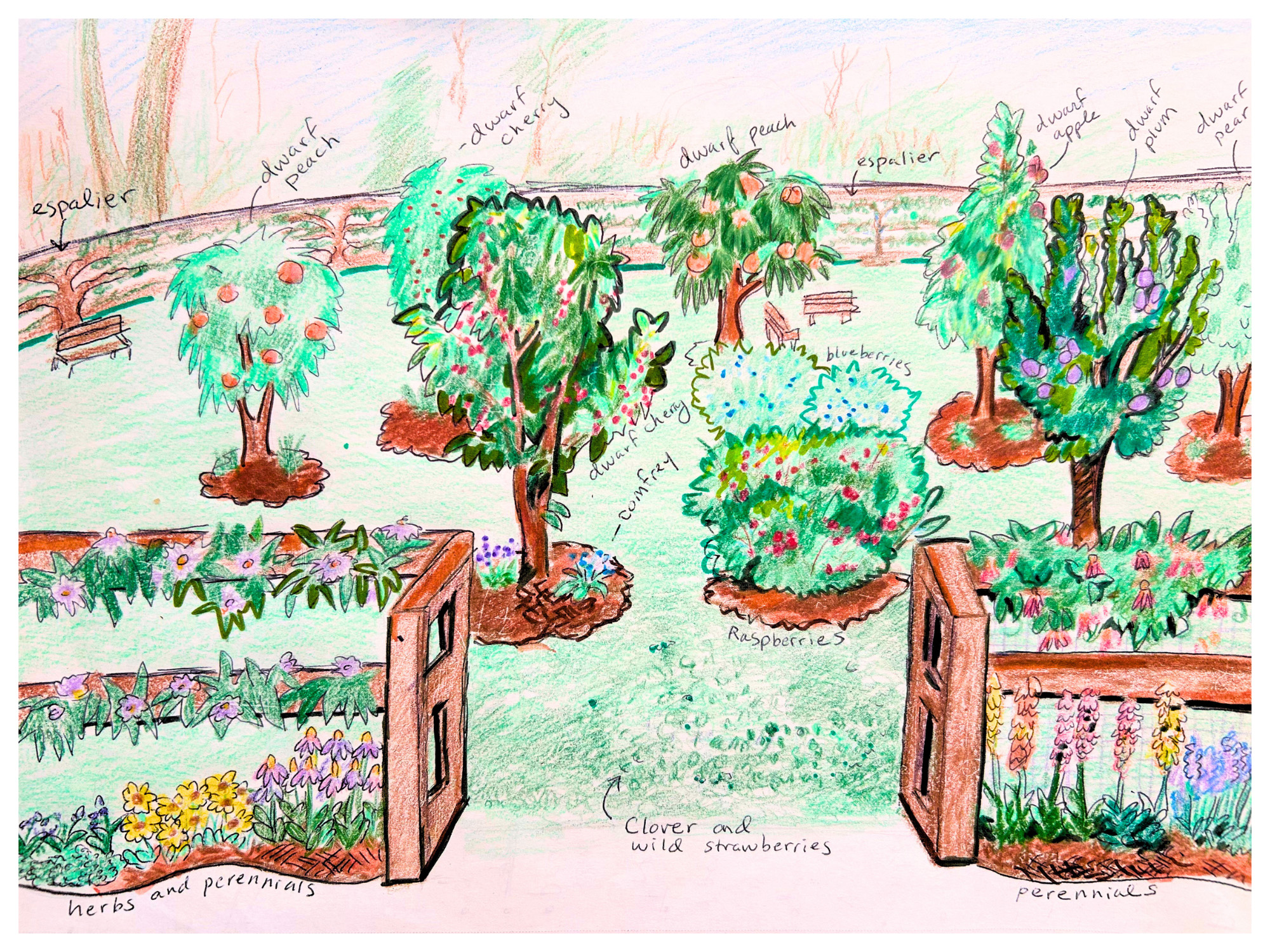UR community gathers to plant and care for an edible landscape
University News
The Eco-Corridor now features a space for connection and environmental education thanks to the addition of an Orchard and Food Forest. The edible plant demonstration site just south of Abby’s Garden aims to boost biodiversity, promote native species, increase tree canopy coverage, and offer hands-on learning experiences at UR.
The area, near the Eco-Corridor’s main entrance, is designed to encourage community involvement and features dwarf fruit trees, including apple, pear, plum, and peach, along with shrubs, such as gooseberry, blueberry, and raspberry. The area also includes herbs and perennial plants, such as echinacea, that attract helpful pollinators.
The idea for the Orchard and Food Forest originated in 2022 with Daniel Hart, associate director of sustainability and environmental justice. Class of 2025 graduate Maddie Hitching contributed to its development through her geography capstone, researching and setting criteria for successful orchards and food forests. Haley Herrmann, a sustainability communications and engagement specialist, created the artistic renderings. The project received funding in 2024 through a $25,000 grant from the Oak Foundation.
Laying the groundwork
A class participating in the sustainability curriculum helped with plant selection, and natural areas steward Joseph Day led volunteer efforts that brought together students, faculty, staff, and the local community to assist with planting and maintaining the site.

Sustainability Communications and Engagement Specialist Haley Herrmann created the artistic renderings to help people imagine the potential of the orchard and its beauty.
As a graduating senior, Rowan Keller joined the project through geography, environment, and sustainability professor Todd Lookingbill’s Landscape Ecology course. Keller worked with two classmates to create a scorecard and spreadsheets for tracking six key metrics (biodiversity, pollination, carbon stock, community engagement, fruit production, and expense tracking) to guide ongoing monitoring of the orchard and its impact.
Keller views the project as a way to educate people about sustainability. “The more efforts like this we have on campus, the more people will get involved and the more positive change we’ll see.”
Day also plans to use the Orchard and Food Forest for cross-disciplinary experiential learning, even for courses that aren't typically related to the environment. “We’re hoping to engage with the sciences, but also with the English department,” Day said. “Literature is full of references to gardens and orchards.”

